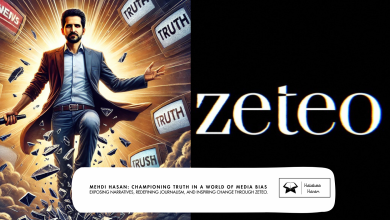Rethinking UK Education and Safeguarding After Holly Newton’s Tragic Death
Holly Newton’s Tragic Death: A Call to Rethink Education, Safeguarding, and Community Awareness in the UK
As a aspiring investigative journalists and an avid LBC listener, I felt driven to write this piece after hearing Shelagh Fogarty interview Aisha Ali-Khan, a well-known educator and human rights activist, on the senseless killing of 15-year-old Holly Newton. As news of Holly’s horrific murder in Hexham, Northumberland, by her 16-year-old ex-boyfriend Logan MacPhail spreads around Britain, people are in shock and despair. Beyond the sadness, though, there is an apparent need to fill the gaps in our community’s education, protection, and assistance for at-risk youth.
Aisha Ali-Khan, who has devoted her life to addressing honour-based violence, gender equality, and women’s representation in politics, presented her ideas on the programme. Ali-Khan’s experience, especially her activism for safeguarding youth from abuse and exploitation, provides a crucial perspective on the necessity of timely reforms. The case of Holly Newton underscores the limitations of our current approach, particularly in the areas of education and safeguarding, and calls on schools, religious organisations, and communities to step up and address these gaps proactively.
Reconsidering Education: Teaching Consent, Control, and Recognising Abuse Early On
In many UK schools, education on relationships and consent is either limited or fails to resonate with the realities that young people face. With cases like Holly’s, where obsessive, controlling behaviour became fatal, there is a growing call to revisit how we approach sex and relationship education (RSE). Holly’s experience underscores the severe consequences that unchecked controlling and coercive behaviour can inflict on at-risk young people. Schools should lead the way in providing young people with the necessary tools to identify and address these red flags promptly.
Gaps in knowledge on coercion, control, and manipulation in relationships could be filled by revising the RSE curriculum. This is particularly crucial for younger adolescents, who may not completely identify the warning signals of abusive conduct in their own relationships. Community advocates like Ali-Khan have repeatedly stressed that schools need to go beyond the basics of sexual health and consent, adding comprehensive lessons on emotional manipulation and boundaries.
Religious and Community Organisations: An Untapped Resource for Support and Awareness
In addition to schools, religious and community organisations have a unique role in safeguarding young people. Often, these organisations are trusted spaces where young people and their families seek guidance and support. By actively promoting awareness and educating members about abuse and manipulation, these groups can become powerful allies in the fight against teenage domestic violence. This tragedy demonstrates the need for faith and community leaders to be trained to identify early warning signs and provide support to vulnerable youth.
Community and religious leaders are uniquely positioned to initiate discussions and workshops focused on healthy relationships, respect, and personal autonomy. For many young people, these organisations are pillars of support, but more must be done to harness this potential in combating abusive behaviour. Ali-Khan, who is vocal about equal representation and gender equality, has worked tirelessly to encourage community-based approaches to addressing gendered violence.
Legal Reform: Bridging the Gap in Protection for Underage Victims
Holly’s case also reveals gaps in the UK’s legal definitions of domestic abuse. Her mother, Micala Trussler, expressed frustration that current law doesn’t recognise under-16s as potential victims of domestic abuse, making it harder to report and intervene in cases like Holly’s. This gap highlights the need for lawmakers to reconsider age thresholds when it comes to protecting young people from emotional and physical abuse within relationships. While Micala has vowed to push for legal reform, her voice is just one of many calling for change.
Cases of teenage abuse should be taken as seriously as adult domestic violence cases, with a corresponding framework that enables intervention. The current age limit places vulnerable young people like Holly outside the scope of certain protections, which is a critical oversight.
A Collective Responsibility to Protect Young People
Holly Newton’s passing serves as a sobering reminder that educational, safety, and legal inadequacies frequently leave young people at risk. Schools, community organisations, and religious leaders can play a transformative role in creating a safer environment for children, but it requires a collective commitment to making change. As Ali-Khan emphasised on Shelagh Fogarty’s show, these issues are not isolated. Instead, they reflect a broader societal need to protect our young people from all forms of abuse and to ensure they are empowered to recognise harmful behaviours before they escalate.
As we mourn Holly’s death, let’s not allow this tragedy to pass without meaningful action. Britain owes its young people the protections they deserve and the awareness they need to navigate relationships safely and confidently. Let’s honour Holly’s memory by ensuring no other young person has to suffer as she did.
For more on Aisha Ali-Khan’s work in gender equality and advocacy, visit her profile on Sister-Hood.




